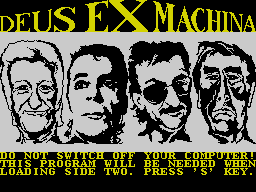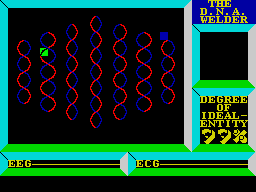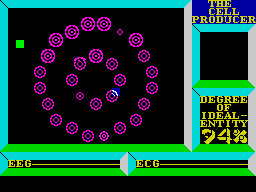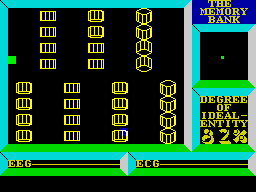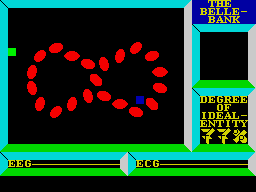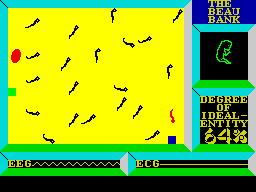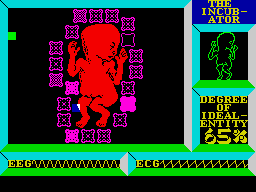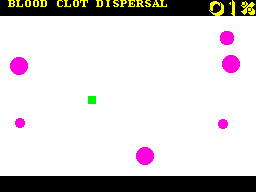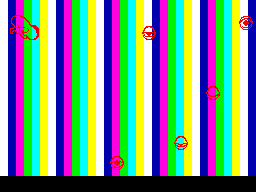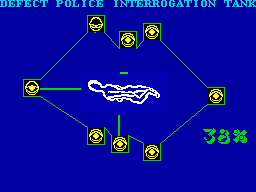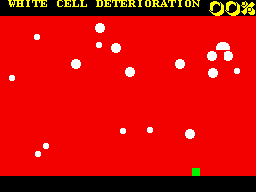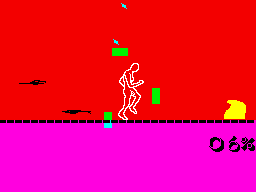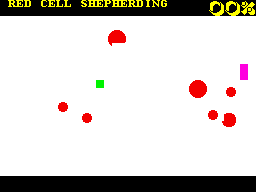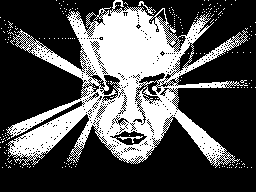| AUTOMATA PRESENTS |
|---|
| DEUS EX MACHINA |
| Deus Ex Machina may be an innovation - bringing a touch ot Hollywood to your screens - but what of the game itself? Is it a game anyway? Ross Holman auditions Automata's rising star, providing out-takes from its screen test. |
Deus Ex Machina is not just a game, it's a visual and aural experience. The idea is not unlike that of the 'concept' LP, where you're supposed to follow a theme from beginning to end. The theme in this case is the growth, birth, ageing and death of a mutant generated by an all-powerful computer. The initial process of creation is in fact brought about via a lump of mouse dropping; you as the player have to nurture and guide this freak organic accident through its life cycle.
For only (?) £15 you'll lay your hands on a very large plastic box containing two cassettes and a large poster. Cassette one provides the computer games, while the other has the accompanying soundtrack. On the reverse of the poster is a brief description of how to load the game and the control options. The game is Kempston and Interface 2 compatible but so easy to control that just using the keyboard alone is not difficult. The poster also offers a complete transcript of the songs and narrative, along with an explanation of each game and pictures of all the celebrities who appear on the tape.
Automata describe the game as 'an animated televised fantasy' and as the union of computer game, film, book and LP is perhaps stretching it a bit. Still, the company is obviously proud of its latest release, and justly so. It's produced maybe 70K of machine code games, all synchronised to a music and narrative cassette, featuring the likes of Frankie Howard, Jon Pertwee, Mel Croucher, Donna Bailey and Ian Dury. All in all it's a slickly produced and presented piece of software which has clearly had a lot of time and effort spent on it. The question is, does it make for an appealing game?
EASY MORALS
Automata certainly seems keen to get across the idea of genetics and dangers inherent in experimenting in this field; any other ideas or messages that may appear to lie within the game are strictly up to the individual to find. As for games content, well, the games are not too difficult to play and getting to the end is easy. On the other hand, I'm sure that this is deliberate. The idea of synchronising game and soundtrack is new and works well, but the appeal soon wears off; eventually, I found myself playing the game without any audio assistance at all!If Deus Ex Machina appeals to you then maybe it's worth the £15 price tag to own what's potentially an interesting chunk of computer history. But don't expect it to knock your socks off.
